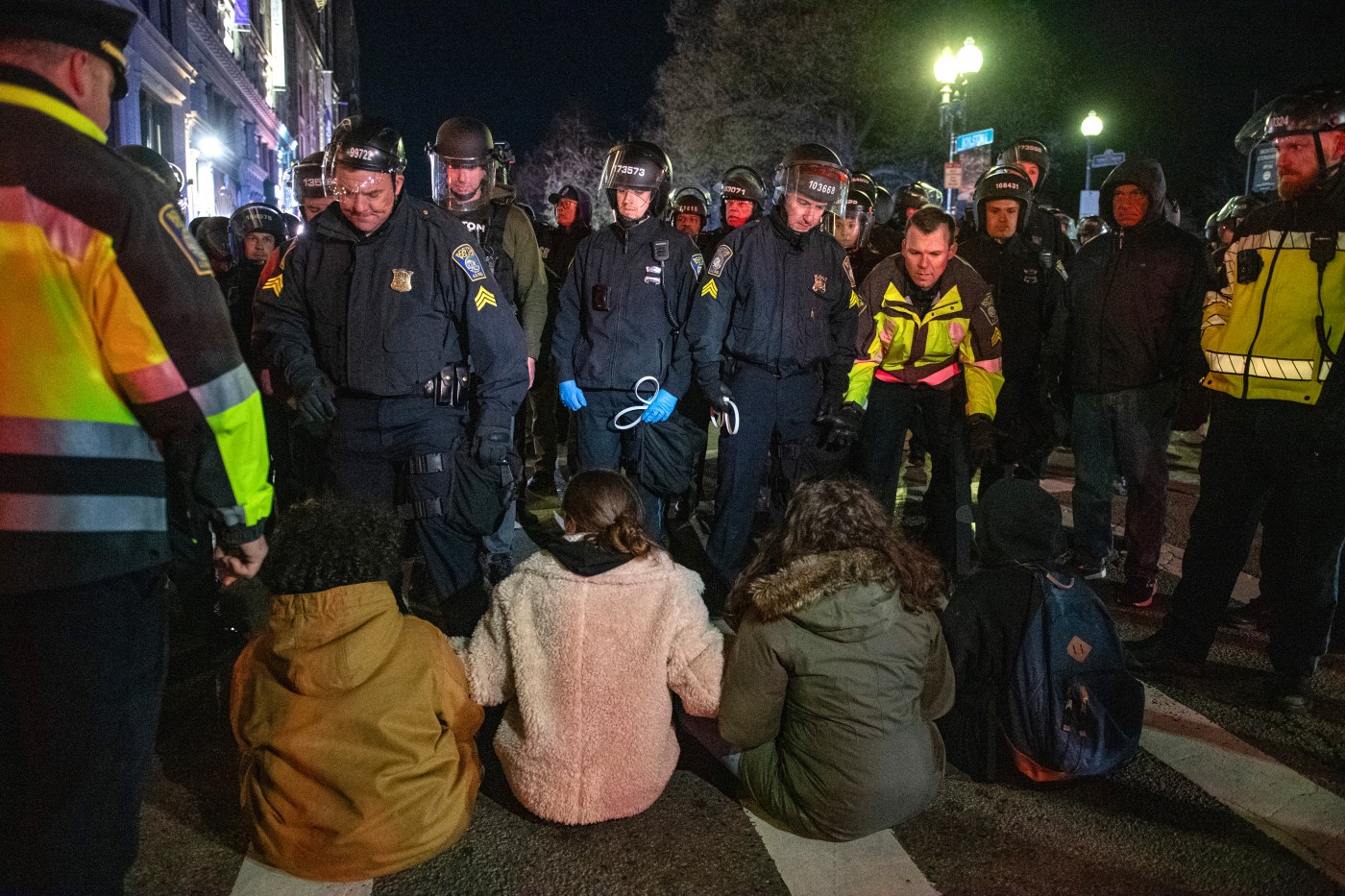
Boston Mayor Wu says Emerson College student protesters wanted to be arrested
Boston Mayor Michelle Wu said the city tried for days to de-escalate the protest encampment at Emerson College, and protesters were even offered around-the-clock warming rooms in exchange for taking down their tents, but students refused the offer because they wanted to be arrested.
Wu’s latest comments Tuesday on GBH’s Boston Public Radio come amid criticism some have directed at what they felt was a heavy-handed police response the mayor directed at the Boylston Place Alley that led to 118 arrests, and calls from several city councilors and the college for the Suffolk District Attorney’s office to drop the charges against students who apparently welcomed the arrests.
The mayor pointed to the city’s long-standing history of protests and her own prior history with “civil disobedience,” saying that her administration did not have a problem with the pro-Palestinian demonstration continuing, but rather with the tents that were violating a local anti-encampment ordinance that was put into place last fall to “protect public health and public safety” around camping structures.
“The only issue was around tents that were starting to increase in number and then block the public doorways and access to the state Transportation Building and different offices and coming and going on that right-of-way so over the course of several days, the city worked with school officials to communicate directly to say if you just take down the tents, no other issues are there,” Wu said.
Related Articles
Boston City Hall sexual harassment lawsuit goes to trial Wednesday
Boston city councilor who criticized Gaza cease-fire vote files pro-Jewish resolution
Most Boston voters favor Mayor Wu’s plan to increase commercial tax rates, poll shows
Workers fix $73M Roxbury school that smelled like poop
Watchdog warns Boston Mayor Wu’s plan to hike business taxes could hurt city’s economy
She added that school officials even made a pitch to student organizers, telling them that if they were to take down the tents, Emerson College would make warming rooms available for protesters 24 hours a day, for as long as they chose to continue their demonstrations in chilly weather conditions.
“The response was that the students, the organizers, wanted to get arrested and would keep the tents up to get arrested,” Wu said.
She also disputed claims that police were in “full riot gear,” stating that while some officers were wearing helmets, no mace or chemical agents were used on the protesters, and of injuries to the involved students, saying that some may have chosen to seek treatment after the fact but there were no documented cases of medical transports or hospitalizations other than to responding officers.
The mayor further spoke of her decision to enforce the anti-encampment ordinance put in place by the city to address homeless encampments and tents authorities said were shielding criminal activity at the troubled Mass and Cass zone last fall for an entirely different population, saying she felt like her hands were tied.
“The challenge about being a police officer and having a city set of standards is that we cannot inconsistently enforce the law,” Wu said. “We cannot say to unhoused residents, you have to comply with this ordinance that is on the books for health and safety, but if you are a student or if you are for a cause that we agree with then we are going to look the other way.”

